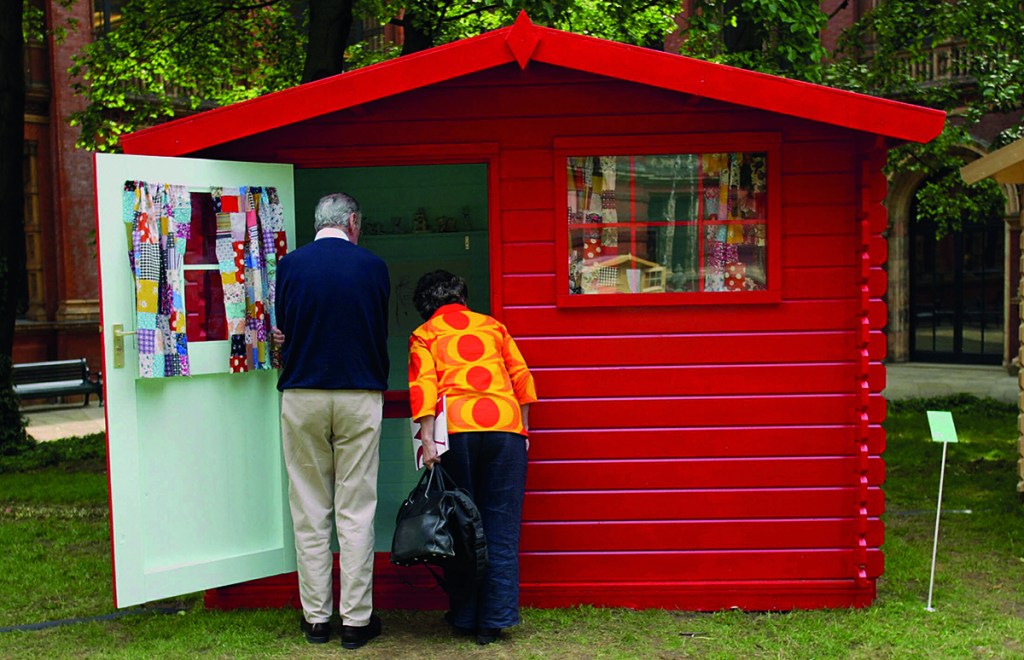‘Well, that’s you shafted,’ said one friend kindly at the start of the worldwide lockdown. ‘Not a good time to be a travel writer.’
Yes and no. Obviously there’s not much actual travel possible at the moment. But the ratio in ‘travel writing’ between ‘travel’ and ‘writing’ has always been grossly disproportionate — too little time spent traveling and far too much time having to write about it when you get back.
In my case, I only did just get back. I was writing a piece about the sunny beaches and boho resorts of northern Uruguay — one of those gigs which leads to envy and resentment, particularly in March — when they introduced the sudden guillotine on air travel. I was traveling with my girlfriend, and for a moment we thought of just staying, as there are worse places to self-isolate than a low-rent beach hut in the sun. This sounded fun for a while but if the lockdown continued for months, it would have become restrictive and complicated. Wiser counsel prevailed, and we slipped over the border to Brazil for one of the last flights back to Europe. Which is lucky, as otherwise we would still be there.
I spent the summer traveling as far as the shed at the bottom of my garden. But that’s where I’ve had to write most of my books in the past anyway. You could argue that travel writing has always prospered when people couldn’t. One of the reasons why Byron’s long epics about Mediterranean sun, Don Juan and Childe Harold’s Pilgrimage, were bestsellers of their day was because the British public were in Napoleonic lockdown and unable to travel there themselves; Byron did it for them. When he wrote of the isles of Greece and how ‘Eternal summer gilds them yet’, he must have had his quarantined British audience salivating.
Vicarious armchair travel has always played a factor in sales. There was a huge boom in the genre during and after World War One, when people were stuck at home and desperate for sun. The travel books and novels of D.H. Lawrence, Norman Douglas and others supplied much-needed literary vitamin D. The titles alone were calculated to entice: Lawrence’s Mornings in Mexico; Douglas’s South Wind.
The same thing happened after World War Two, when resources were scarce and another great wave of travel writing took place: people could read about going abroad even if they couldn’t afford it. Eric Newby and others fed this appetite, helping to unleash the adventurous tourism that began in the 1960s. Newby’s A Short Walk in the Hindu Kush encouraged many a young hippy traveler to take the magic bus to Afghanistan.
In recent years people have become more resistant to travel books on exotic places because of low-cost flights: ‘Why bother reading about somewhere when you can so easily go there?’ The focus has turned from the ambition of the journey to the quality of the writing, like W.G. Sebald on the complicated joys of a past walk along the East Anglia coast in The Rings of Saturn: ‘Writing is the only way in which I am able to cope with the memories which overwhelm me so frequently and so unexpectedly.’
Travel writing as a form of memoir means that one can write about travel that happened a long time ago. Patrick Leigh Fermor spent much of a long literary life recreating just one journey: A Time of Gifts and its sequels came out more than 40 years after his original Balkan travels of the 1930s. He didn’t ever have to leave his delightful retreat in the Greek Peloponnese.
There may even be something that makes ambitious journeys difficult to assimilate too close to the time. Their sensory overload can only best be interpreted years later, when the glitter and noise falls away to reveal structure underneath. An earlier book of mine, Tequila Oil: Getting Lost in Mexico, was largely about my own attempts to make sense of a wild road trip in an old American car I had taken through that country 30 years before; most of it was again written back home in a shed.
The redoubtable Dervla Murphy had to spend most of her twenties at home in her native Ireland caring for invalid parents, during which time she read travel books and fantasized about going abroad. When she was finally able to, in her thirties, she ‘pinged off like a piece of elastic’, as she once put it to me, bought a bike, took off all the gears so there was less to go wrong and started pedaling all the way to India. The resulting book, Full Tilt, is one of the great classics. I suspect that as lockdown eases, we will all start making journeys again of ambition and purpose, and make them with even greater excitement having been deprived for a while. Meanwhile there are plenty of inspiring travel books to read in our armchairs.
This article was originally published in The Spectator’s January 2021 US edition.

























